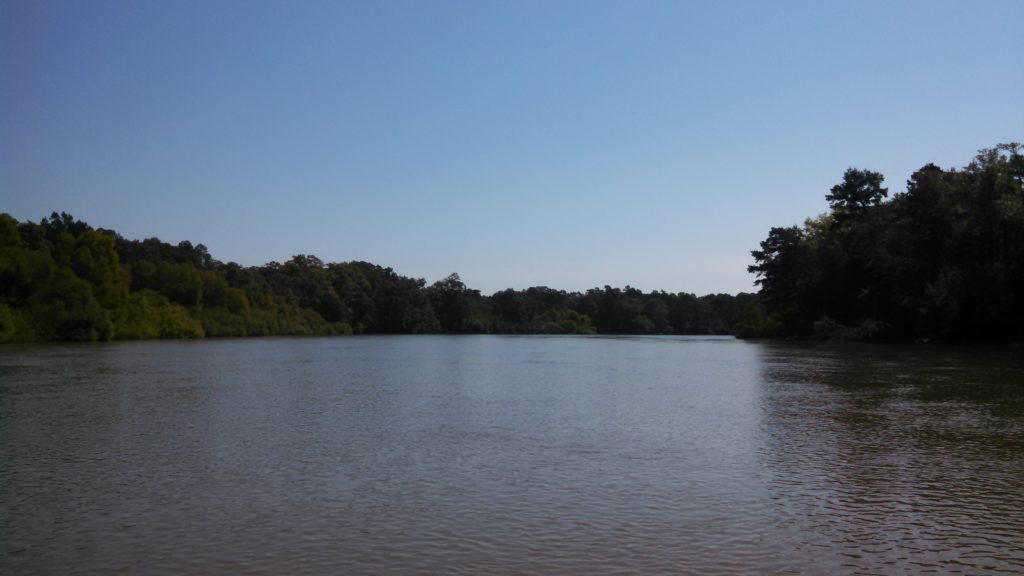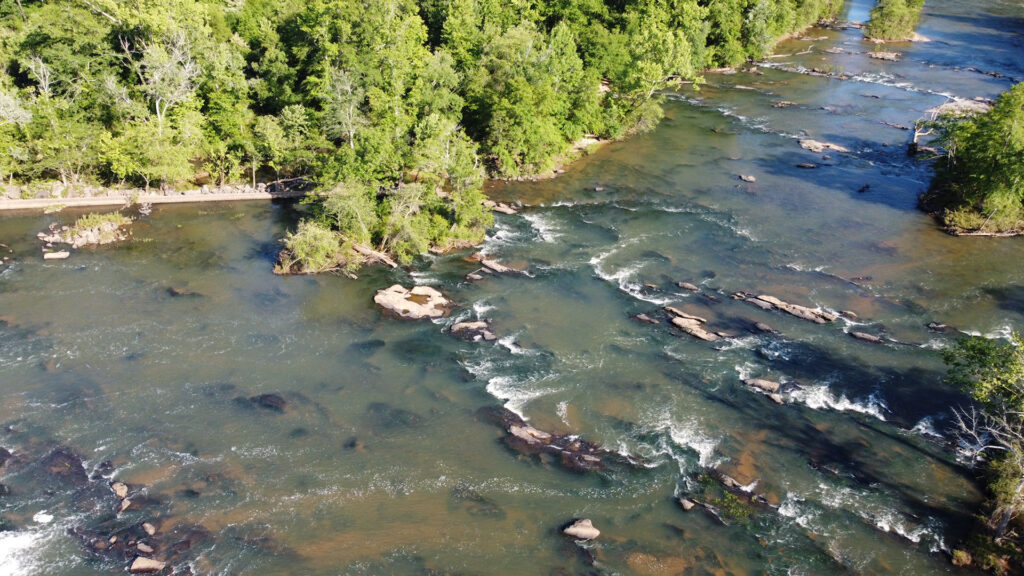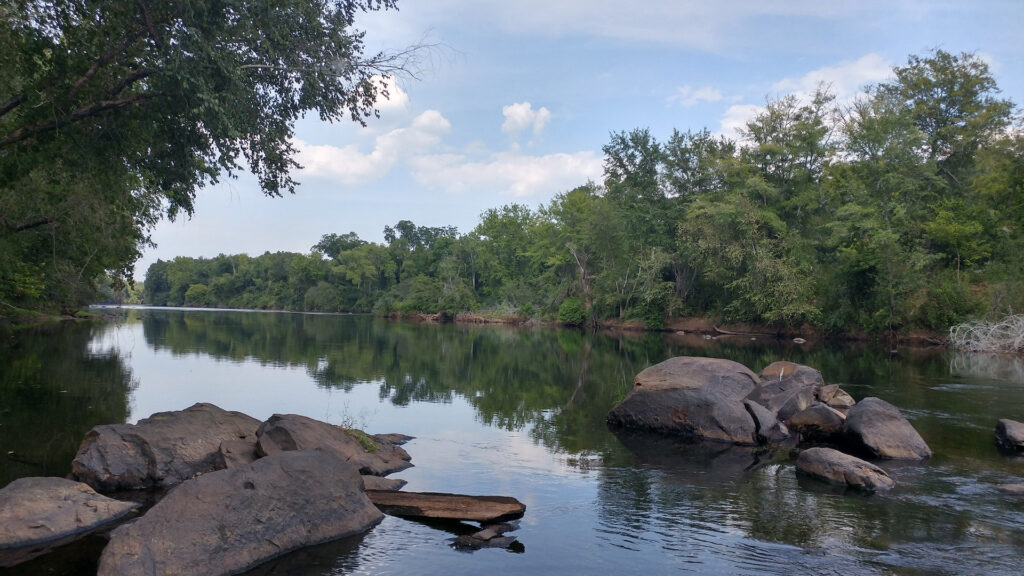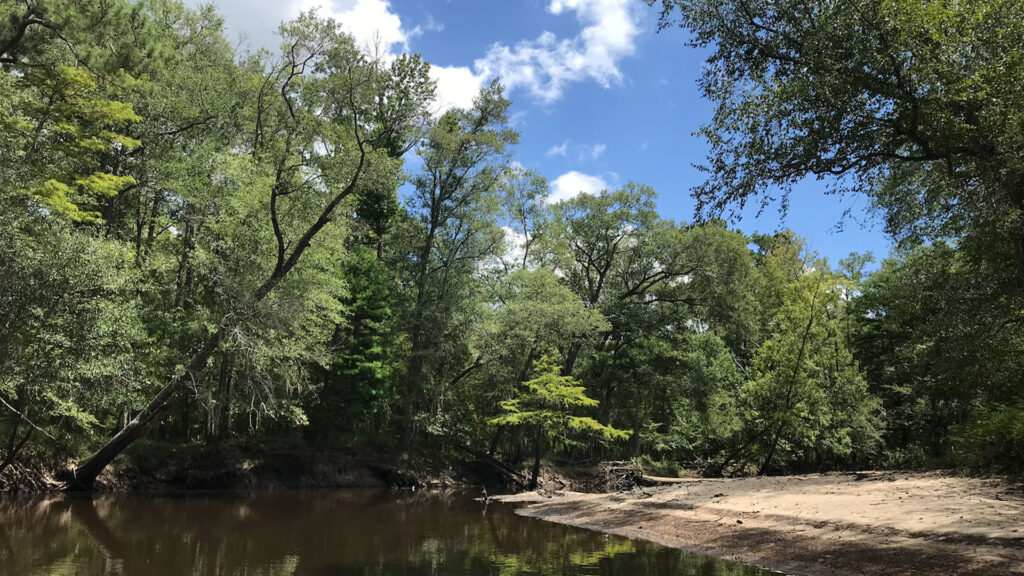What We Do
What Does Altamaha Riverkeeper Do?
Altamaha Riverkeeper protects, defends, and restores the Altamaha Watershed from our large rivers, the Ocmulgee, Oconee, Ohoopee and Altamaha to the smallest tributaries and coastal marshlands. The Altamaha Riverkeeper aggressively monitors pollution and polluters throughout the watershed through a program of water sampling and analysis. We also monitor land-based activities that impact the health of the river including forestry and agriculture practices, wetlands destruction and development.
How Does Altamaha Riverkeeper Do It?
On any given day you might find us:
- Investigating a citizen complaint regarding alleged illegal dumping into a waterway.
- Talking to a legislator about bills that could better protect the watershed.
- Negotiating with commercial businesses or developers about ways to minimize any negative impacts on our rivers.
- Working on events or talking with school classes to get more people to understand, enjoy and protect all that our streams have to offer.
- Out collecting water samples, taking pictures or engaged in other activities involved in developing legal cases against known polluters.
The very first thing we must do is identify locations where chemical and biological pollutants are discharged into waterways. Through water testing and site inspection, we determine whether these problems are in violation of state, local or federal law. Our first step towards a solution in all these efforts is to alert authorities to the issue and work with regulators and stakeholders to reduce or eliminate the problem. In cases where regulatory agencies decline to act, then we will work to rally public support, and if necessary, resort to legal action against the polluter and/or regulators. Finally, if current laws do not provide adequate remedies, then we work with our partners in the Georgia Water Coalition to develop policy proposals or legislation to address shortcomings in state environmental regulations.
The fight for clean water is a fight for one of the most basic and essential human rights. If we want a future with streams that are fishable, swimmable and drinkable, then we all have a vested interest in protecting our waterways. Today, water resources are declining in quantity and quality in many parts of our watershed. Altamaha Riverkeeper works to defend our water resources against anyone whose activities threaten those resources that belong to all of us. And to succeed, we always need your help. Contact us about problems you see.
With your support, the Altamaha Riverkeeper can continue to be a strong watchdog, and the voice for, the Altamaha, Ocmulgee, Oconee, and Ohoopee Rivers, their tributaries and the Altamaha delta at the Atlantic Ocean.
History of Waterkeeper Movement
Our story started in 1966 when commercial and recreational fishermen, many of them veterans, united to save their river and formed the Hudson River Fishermen’s Association. These fishermen recognized that outspoken, citizen-led advocacy was the only way to ensure that laws were enforced and their river, livelihood and the health of their families were protected. They took on many of the nation’s biggest industrial polluters and won.
In 1983, they hired the first full-time Hudson Riverkeeper to patrol the river, to restore its abundant fisheries and to lead citizen-based enforcement of environmental laws. Since those early days, Hudson Riverkeeper has brought hundreds of polluters to justice and forced them to spend hundreds of millions of dollars restoring the Hudson to health. Their success spurred an explosive growth of similar grassroots programs across the globe, and in 1999 Waterkeeper Alliance was founded to support these programs. In 2000, Altamaha Riverkeeper obtained our license to begin protecting the Altamaha Watershed.
Altamaha Riverkeeper is a member of Waterkeeper® Alliance, the world’s fastest growing environmental movement, uniting more than +350 Waterkeeper organizations around the world and focusing citizen action on issues that affect our waterways, from pollution to climate change. These Waterkeeper organizations are on the frontlines of the global water crisis patrolling and protecting more than 1.5 million square miles of waterways on six continents.
The Waterkeeper movement’s mission is for swimmable, drinkable, fishable waterways worldwide. Our belief is that the best way to achieve this vision is through the Waterkeeper method of grassroots advocacy. Waterkeeper Alliance is the voice for the world’s waters, from the Great Lakes to the Ganges. Where waters and communities are protected by active Waterkeeper programs, we make sure they never have to stand alone; where waters lack protection, we advocate on their behalf, and for all communities whose right to healthy water is threatened.
Visit www.Waterkeeper.org for more information.
The Clean Water Act
The Clean Water Act was enacted to protect the quality of our nation’s waterways. In creating this legislation, Congress initially intended to eliminate all pollution discharges into our waterways. Unfortunately, this goal has not been realized. Instead, under the Act, industries and municipalities are allowed to discharge pollutants into the waters of the state under a program called the National Pollution Discharge Elimination System (NPDES).
Under this program, an industry or municipality can receive a permit to discharge specific amounts of pollutants. The Georgia Environmental Protection Division (EPD) has been delegated the authority for setting and enforcing NPDES discharge permit limits by the federal Environmental Protection Agency (EPA). NPDES permits are up for renewal every five years. Interested citizens can comment on the permit limits and, in some cases, the EPD holds a public hearing to hear citizen concerns. Permits may be appealed within 30 days of their issuance.
NPDES permit holders are required to submit a monthly Discharge Monitoring Report (DMR) on their discharge. It is self-reported. Georgia does not charge a fee for discharging pollutants into our waterways but the state can assess fines and penalties for permittees who exceed their permit limits. Failure to file a DMR or falsifying a report can also result in a fine.
With the ongoing assistance of environmental law firms such as EarthJustice, Stack & Associates, and Southern Environmental Law Center, the Altamaha Riverkeeper organization has improved water quality through NPDES permit appeals and Clean Water Act cases, and will continue to do so.
There are so many ways that you can help keep our rivers clean and beautiful. Responding to Action Alerts or reaching out to your elected representatives. Find your way to get involved!





